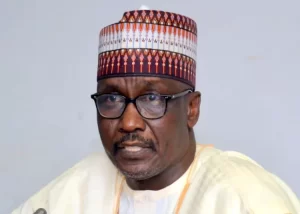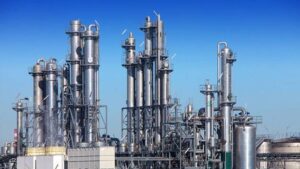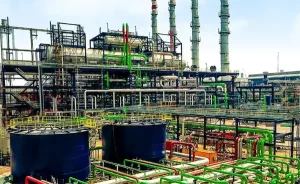Refinery Overhaul in Port Harcourt: Former NNPC GMDs Applaud Progress

Refinery Overhaul in Port Harcourt: Former NNPC GMDs Applaud Progress
Former group managing directors (GMDs) of the Nigerian National Petroleum Company Limited (NNPC Ltd) have praised the work of the current management team, led by Mele Kyari, despite the continued skepticism and criticism surrounding the Port Harcourt Refinery’s renovation.
The past GMDs referred to the accomplishment as “magic” after touring the refinery at their last NNPC GCEOs Forum in Port Harcourt.
Dr. Jackson Gaius-Obaseki, the group’s GMD from 1999 to 2003, spoke on behalf of the group and said many detractors don’t realize how much labor is involved. He explained that this was a complete renovation that transformed a 1965-built plant into a cutting-edge facility rather than a standard Turnaround Maintenance (TAM).
Some critics are unaware of the scope of the work that has been done. They think it’s just routine turnaround maintenance. This is a full restoration, turning a 1965 plant into a contemporary one in 2024. “Thank you for your effort,” Dr. Obaseki said.
Regarding gasoline pricing, he emphasized that the price of crude oil affects the price at the pump and urged public awareness.
Concerns about the Port Harcourt Refinery’s cost, effectiveness, and historical background of Nigeria’s oil industry have led to a great deal of criticism.
The refinery was first put into service in 1965, but years of neglect have caused its operational capacity to drastically deteriorate.
With the goal of restoring it to 90% capacity by 2025, the federal government authorized a $1.5 billion renovation contract in 2021.
Critics contend that compared to constructing a new institution, spending so much money on rehabilitation would not be the most prudent financial move. They cast doubt on the Port Harcourt facility’s long-term sustainability by highlighting the enduring problems of corruption, pipeline vandalism, and crude oil theft that have beset Nigeria’s refineries.
There is still doubt about the real output and caliber of the goods being produced, even after operations have resumed.
Operational setbacks and several unsuccessful restoration attempts are part of the refinery’s complicated past. Only a small portion of anticipated production was realized as of late 2024, according to reports, and there were claims that recently loaded petroleum products were really kept from prior years rather than newly refined. This circumstance is indicative of more general systemic problems in Nigeria’s oil sector, where state-owned refineries have traditionally been financial liabilities rather than successful businesses.
The restoration project’s proponents contend that by reducing dependency on imported petroleum products, it might lower fuel prices and generate jobs.
Many analysts warn that the investment might not produce the expected returns if underlying management problems and operational inefficiencies are not addressed. The divergent opinions draw attention to a crucial discussion on Nigeria’s energy future and the part
However, Gaius-Obaseki praised the accomplishment as evidence of bravery and commitment, and he urged Mele Kyari, the GCEO, to keep his attention on providing value to Nigerians.
Andrew Yakubu, Chamberlain Oyibo, and Funsho Kupolokun were among the other former GMDs that attended the conference and praised the project’s accomplishments.
Do you find Tmaq Media useful? Click here to give us five stars rating!
























